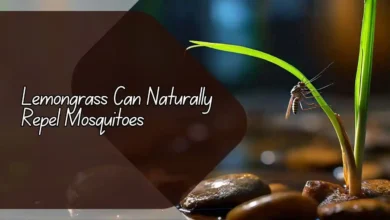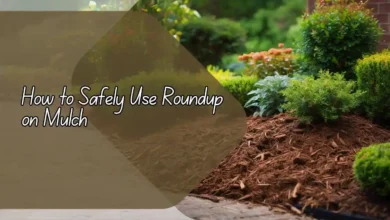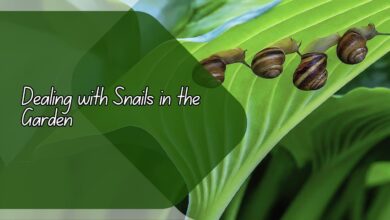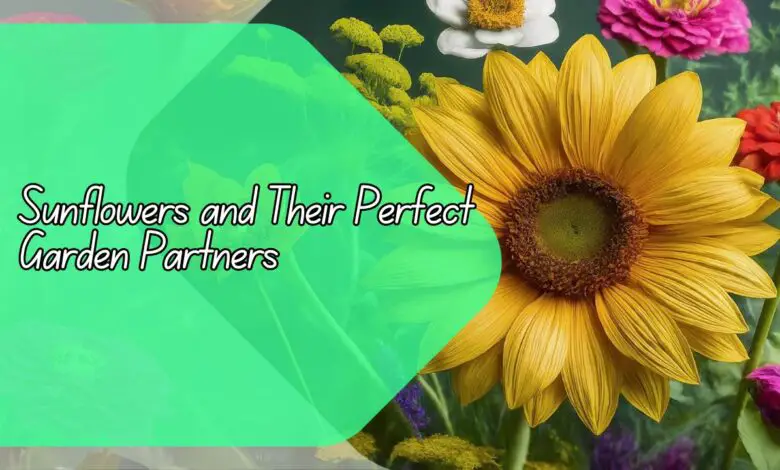
Companion Planting: Sunflowers and Their Perfect Garden Partners
In this article, we will explore the concept of companion planting, specifically focusing on the benefits of planting sunflowers alongside their perfect garden partners. Companion planting is a gardening technique where different plants are grown together to provide benefits such as pest control, pollination, and overall garden health.
Sunflowers, with their bright blooms and tall stature, are not only beautiful additions to any garden but also serve as excellent companions to a variety of other plants. Let’s take a closer look at how sunflowers can enhance your garden when planted alongside their ideal partners.
Why are Sunflowers Beneficial in Companion Planting?
Sunflowers are not only aesthetically pleasing in the garden, but they also offer a range of benefits to their companion plants. One of the key advantages of planting sunflowers is their ability to attract pollinators, such as bees and butterflies, which helps in the pollination of other plants in the garden.
Additionally, sunflowers have deep root systems that can help improve soil structure and fertility by drawing up nutrients from lower soil levels.
Furthermore, sunflowers can act as a natural trellis for climbing plants, providing support and structure for vines such as peas, beans, and cucumbers. Their tall stature also helps provide shade to shade-tolerant plants that may benefit from a break from the harsh midday sun.

Which Plants Thrive Alongside Sunflowers?
When it comes to companion planting with sunflowers, there are several plants that thrive when grown alongside these sunny blooms. One of the most popular pairings is planting sunflowers with corn. The tall stalks of sunflowers provide support for the corn plants to climb, while the corn helps provide shade to the sunflowers’ roots, conserving soil moisture.
Another excellent companion for sunflowers is the marigold plant. Marigolds are known for their ability to repel pests such as nematodes, which can damage the roots of other plants. Planting marigolds alongside sunflowers can help protect the garden from harmful pests while also adding a pop of color to the garden beds.
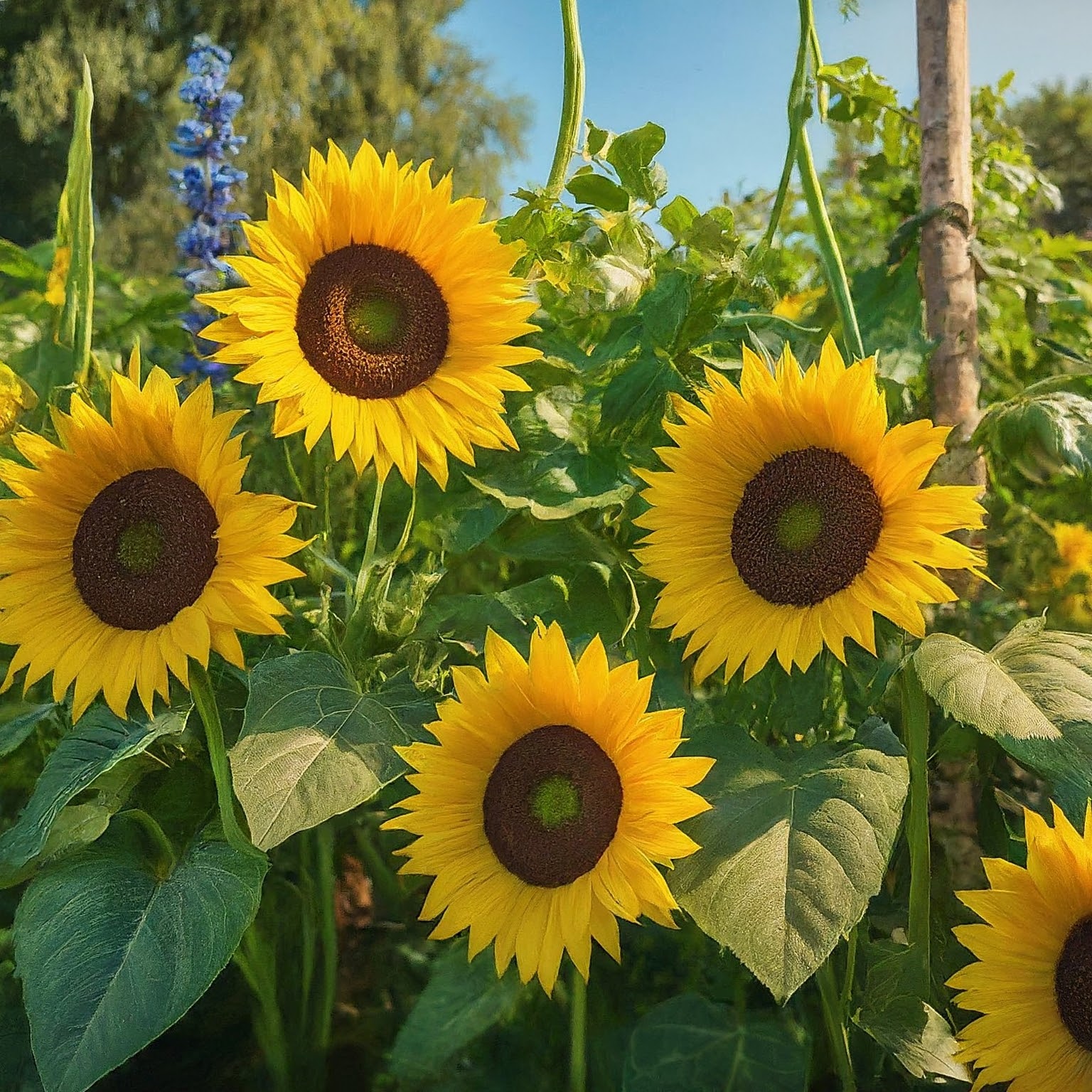
How Can I Incorporate Sunflowers into My Garden?
Adding sunflowers to your garden is a simple and rewarding process. Start by selecting a sunny spot in your garden with well-draining soil. Plant sunflower seeds directly into the ground after the last frost date, spacing them according to the specific variety’s recommendations. Water the seeds regularly, keeping the soil consistently moist until the sunflowers begin to sprout.
Consider planting sunflowers in clusters throughout your garden to create visual interest and maximize their benefits as companion plants. Be sure to provide adequate support for taller varieties to prevent them from bending or breaking in strong winds. With proper care and maintenance, your sunflowers will thrive alongside their companion plants, enhancing the overall health and beauty of your garden.

Are Sunflowers Low-Maintenance Plants?
Sunflowers are generally considered low-maintenance plants, making them an excellent choice for beginner gardeners or those with limited time for gardening tasks. Once established, sunflowers require minimal watering, as they are drought-tolerant plants that can withstand dry conditions.
However, it is essential to monitor soil moisture levels, especially during hot, dry periods, and provide extra water when necessary to promote healthy growth.
Additionally, sunflowers benefit from regular fertilization to ensure optimal growth and bloom production. Consider using a balanced, slow-release fertilizer to provide the necessary nutrients for healthy sunflower development. Deadheading spent blooms can also encourage continuous flowering and prevent the plant from producing seeds prematurely.

Can Sunflowers Attract Harmful Pests to the Garden?
While sunflowers attract beneficial pollinators to the garden, they can also attract certain pests that may cause damage to other plants. One common pest attracted to sunflowers is the sunflower moth, which lays its eggs on the flower heads, leading to larval damage and reduced seed production.
To mitigate the risk of pest infestations, monitor sunflower plants regularly for signs of pest activity and take appropriate measures, such as handpicking pests or using organic pest control methods.
Additionally, planting sunflowers alongside pest-repelling companion plants, such as marigolds or garlic, can help deter harmful insects and maintain a healthy balance in the garden ecosystem. By practicing proper garden hygiene and implementing preventative measures, you can minimize the risk of pest infestations and ensure the overall health of your garden plants.
Conclusion
Companion planting with sunflowers offers numerous benefits for your garden, from attracting pollinators and improving soil health to providing support for climbing plants and adding visual appeal.
By selecting the right companion plants to grow alongside sunflowers, you can create a harmonious and thriving garden ecosystem that promotes plant growth and reduces pest pressure. With proper care and maintenance, sunflowers and their perfect garden partners can transform your garden into a vibrant and productive space.
FAQs
Can I plant sunflowers in shaded areas?
Sunflowers thrive in full sun and require at least 6-8 hours of direct sunlight daily to grow and bloom successfully. Planting sunflowers in shaded areas may result in stunted growth and limited flowering, so it is best to choose a sunny spot for optimal results.
Are sunflowers suitable for container gardening?
While sunflowers are typically grown in garden beds for their height and spread, certain dwarf varieties can be grown in containers successfully. Select compact sunflower cultivars that are well-suited to container growing and ensure they receive adequate sunlight, water, and nutrients for healthy growth.
Do sunflowers attract bees and butterflies to the garden?
Yes, sunflowers are known for attracting pollinators such as bees and butterflies with their bright blooms and abundant nectar. By planting sunflowers in your garden, you can create a welcoming environment for beneficial insects that help pollinate your other plants and promote biodiversity.
Can I harvest sunflower seeds for consumption?
Absolutely! Sunflower seeds are not only popular snacks but also nutritious additions to baked goods, salads, and other dishes. To harvest sunflower seeds, wait until the flower heads have dried and the seeds are mature, then remove and dry the seeds before roasting or using them in recipes.
How do I prevent sunflowers from toppling over in strong winds?
Supporting tall sunflower varieties with stakes or trellises can help prevent them from bending or toppling over in strong winds. Secure the main stem of the sunflower to the support structure using soft ties or garden twine to provide additional stability and prevent damage to the plant.





